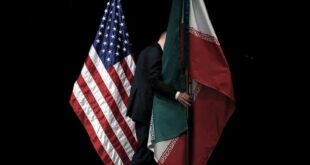 Iran rejected on Wednesday accusations by US President George W. Bush that Tehran was fomenting instability in Iraq, and called on Washington to change its policies in the region. “They (the US accusations) are not true,” Iranian Foreign Ministry spokesman Mohammad Ali Hosseini told Reuters by phone, saying Bush was repeating them “again and again”.
Iran rejected on Wednesday accusations by US President George W. Bush that Tehran was fomenting instability in Iraq, and called on Washington to change its policies in the region. “They (the US accusations) are not true,” Iranian Foreign Ministry spokesman Mohammad Ali Hosseini told Reuters by phone, saying Bush was repeating them “again and again”.
The spokesman did not comment on Bush’s remarks that Iran’s pursuit of the atomic bomb could lead to a nuclear holocaust in the Middle East.
Bush and other US officials have long accused Iran of supplying weapons to insurgents in Iraq, but in a speech to veterans on Tuesday the president hardened his stance by lumping Tehran and al Qaeda together.
“Iran’s actions threaten the security of nations everywhere. And that is why the United States is rallying friends and allies around the world to isolate the regime, to impose economic sanctions. We will confront this danger before it is too late.
Bush’s verbal attack on Iran came just hours after Iranian President Mahmoud Ahmadinejad said the power of the United States was rapidly collapsing in Iraq and that Tehran was ready to step in to help fill the vacuum.
Iran blames the US-led invasion of Iraq in 2003 for the violence that is threatening to tear the country apart and has repeatedly called on US forces, now numbering about 160,000, to leave the neighboring country.
Hosseini said the US path was neither “useful nor fruitful”, adding, “It is better for him (Bush) to change his point of view and political decisions.”
The two countries, which have not had diplomatic ties since shortly after Iran’s 1979 Islamic revolution, are also embroiled in a standoff over Tehran’s nuclear program, which the West claims is aimed at making atom bombs. Tehran denies the charge vehemently.
With 164,000 U.S. troops in Iraq and patience growing thin in the Democratic-controlled US Congress and the American public, Bush has been defending his Iraq war strategy.
A report by the US commander on the ground in Iraq, Gen. David Petraeus, and the US ambassador to Iraq, Ryan Crocker, due to be sent to Congress by September 15, could trigger a change in Iraq policy.
 Eurasia Press & News
Eurasia Press & News


